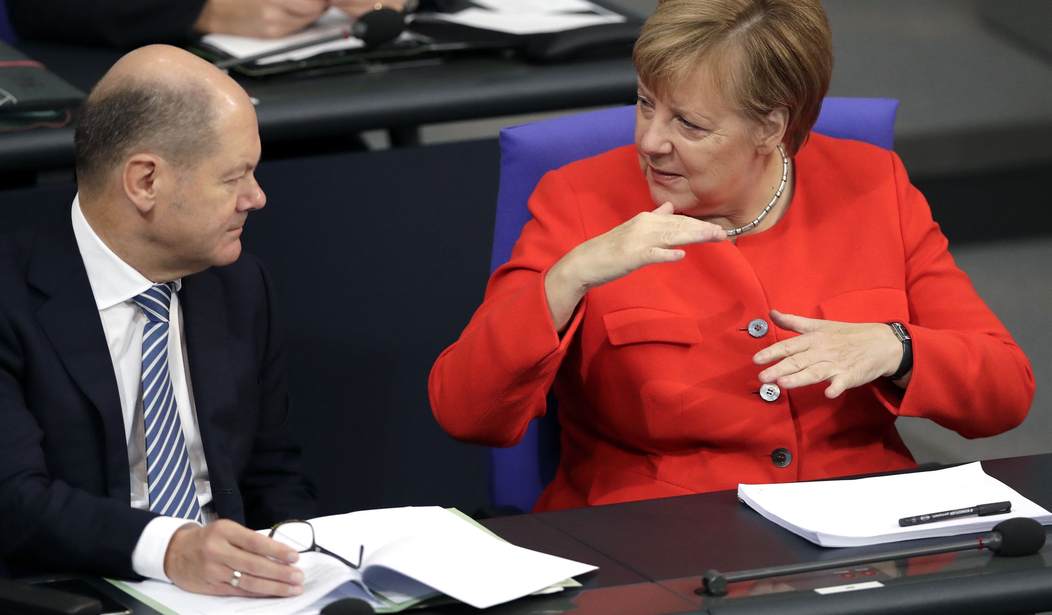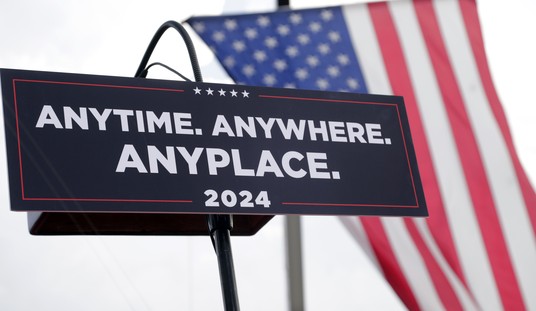A new year and more of the same grim news rolling in for the Greens running Germany.
It's all fahrvergnügies as far as the eye can see - nary a glimmer of hope.
Happy New Year, Greens - looks like you pulled it off.
Germany's Days as an Industrial Superpower Are Coming to an End.
As political paralysis grips Berlin, the energy crisis was the final blow for a growing number of manufacturers
...There have been numerous iterations of such finales over the past year, underscoring the painful reality facing Germany: its days as an industrial superpower may be coming to an end. Manufacturing output in Europe’s biggest economy has been trending downward since 2017, and the decline is accelerating as competitiveness erodes.
“There’s not a lot of hope, if I’m honest,” said Stefan Klebert, chief executive officer of GEA Group AG — a supplier of manufacturing machinery that traces its roots to the late 1800s. “I am really uncertain that we can halt this trend. Many things would have to change very quickly.”
The chart couldn't be clearer on the trend.
Germany's Industrial Superpower Days Are Over, A Green "Victory" https://t.co/XPdrzTB4cV
— zerohedge (@zerohedge) February 12, 2024
Nobody but German Greens did this to Germany - not even Russia.
...Before we get into this year’s woes, let’s recap. In 2011, Germany embarked upon its Energiewende, its climate-oriented energy policy that aimed to move off of both fossil fuels and nuclear by switching to wind and solar for 65% of gross electricity consumption by 2030. This plan had several consequences: a dramatic 40.8 percent drop in carbon emissions compared to 1990, the death of the German nuclear fleet, dependence on Russia for natural gas (energy imports accounted for 71% of Germany’s energy supply in 2019), and the crippling of Germany’s economy in the wake of Russia’s invasion of Ukraine.
As for the forlorn hope of the fellow in the manufacturing supply business about "things having to change quickly," that's not on the horizon. At least, not in a positive sense. Things are changing, but nothing's going right.
Electrical rates, which have been killing consumers, bankrupting smaller businesses, and crippling larger ones, have been coming down, but not from cheaper generation and more capacity. They're coming down because there's less demand.
...2023 has already been written off as a “lost year” for the country. Sadly, according to reporting from Bloomberg, 2024 looks scarcely better. True, power prices have fallen since their staggering heights last year, but electricity demand and generation have gone with it.
Even at these rates, Germans are paying for electricity at prices that are still higher than darn near every other economy in the European Union.
And the brilliant hydrogen pie-in-the-Green-sky fix Olaf Schulz's government came up with to compensate for the loss of Russian LNG, not to mention their own madness in shuttering perfectly functional and reliable nuclear plants?
POOF. Up like a unicorn-fart-filled Hindenburg thanks to their self-induced budgetary crisis.
...Here’s where the news gets worse. Germany was counting on clean hydrogen to replace its natural gas, allowing the country to run a climate-friendly grid by 2035. Last August, the government announced its lavish subsidies to make these ambitions possible. The plan involved building “8.8 GW of dedicated hydrogen power plants, alongside 15 GW of natural gas-powered ones that ought to switch to hydrogen by 2035 at the latest, in total representing about one-third of the German peak power demand of 2023,” reports Euractiv.
This was good news for the Energiewende because the hydrogen plants were meant to cover the gaps in renewable generation, which can go dead for weeks at a time in Germany.
But then a budget crisis hit the government. The crucial $7.6 billion needed to even begin this project evaporated. What does that mean? More coal, says the chief of a leading Germany industrial group, BDI.
What was that again?
Let's repeat this established fact: Germany's renewable generation CAN GO DEAD FOR WEEKS AT A TIME.
Blame the damn dunkelflautes, which are well known, commonly occurring, not caused by climate change, every dang winter phenomena.
But were completely ignored in these big plans.
And yet, Germans allowed their government to shut down their nuclear reactors in favor of Green energy.
...Earlier this month, another Dunkelflaute took place and coal served as the main back up to keep Germany running. Some might hope batteries can step up to replace the coal, but batteries aren’t synonymous with dispatchable baseload energy—you have to charge batteries with power from the grid, so they don’t produce “new” power, they only move power around in time and space.
And even if batteries could cover Dunkelflautes, which can often last between 50 and 150 hours, they’re way too expensive. According to the engineer and energy analyst Hügo Krüger, covering a 10 hour Dunkelflaute with batteries priced at $200 kW/hr would cost $296 billion upfront, plus $59.2 million (add this on again every ten hours as needed). Remember: winter comes every year.
And that’s why the Dunkelflaute disproves the “renewables only” dream Germany once dreamt. The Energiewende is falling apart. The country is quite far from where they want to be on their emissions targets and their energy sector looks a mess. The drag on its economy and public coffers is, at this point, undeniable. A course correction appears underway.
That course correction is here right now. Politically, unless the current ruling parties can successfully use their street-savvy stormtroops to paint the surging right-wing party as scary Neo-Nazi nationalists, the Greens are going to be out of a job.
...Frustration is widespread. Although hundreds of thousands of people have hit the streets in recent weeks to protest against far-right extremism, the anti-immigration Alternative für Deutschland, or AfD, is ahead of all three ruling parties in the polls — trailing only the conservative bloc. Scholz’s Social Democrat-led alliance has support from 34% of voters, according to a Spiegel analysis of recent surveys.
But fixing what the Angela Merkel legacy has wrought won't be easy because all the bazillions spent on the climate cult chasing renewable nirvana has left German infrastructure completely neglected. And I'm not talking potholes and leaky city sewer pipes. I'm talking things we take for granted here that you would assume automatically the industrial whiz kids of the world already had covered.
They have no tech sector to speak of. Zilch. When their manufacturing dies away, that's it. There's going to be nothing to pivot to
Even if they wanted to swiftly move in another direction, they couldn't. Infrastructure has languished so badly they could never catch up in time, even if they could afford it.
I mean, this is mind-blowing.
...Germany lags the US and China on Artificial Intelligence (AI), EVs, battery development, microchips, phones and even basic internet services.
Liechtenstein has the fastest internet speed in the world in 2023 at 246.76 Mbps according to AtlasAndBoots.
The US is number 10 at 136.48 Mbps. Germany is number 36 at 81.73 Mbps.
A December 2023 Speedtest by Ookla shows similar results.
Ookla has the US in 8th place for fixed broadband and 13th for mobile. Germany is in 51st place for broadband and 45th place for mobile.
One reason is Germany is still reliant on copper lines. While most of the rest of the world turned to fiber, Germany made little investment in its own infrastructure. Germany is still working on the last mile.
Yeah.
But they got windmills, baby - and no nukes.
Like the frog sings - IT AIN'T EASY BEING GREEN
There's a lesson in here somewhere for our own situation. Let's see who learns it.








Join the conversation as a VIP Member